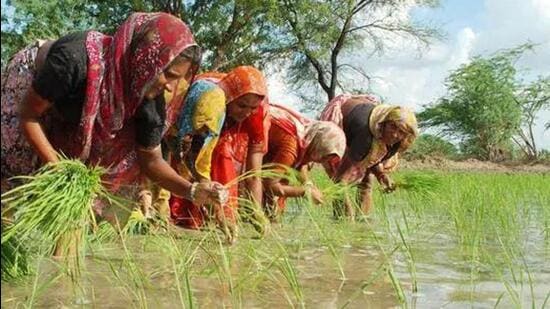West Bengal biodiversity board attempts to bring back traditional crop varieties
The West Bengal Biodiversity Board (WBBB) has prepared People’s Biodiversity Registers containing comprehensive account of local bio-resources along with related traditional knowledge and practices of the area. Efforts are now on to come up with at least five ‘seed banks’ across the state.
KOLKATA: Equipped with knowledge about the traditional practices and bio-resources in the form of People’s Biodiversity Registers, experts from the West Bengal Biodiversity Board (WBBB) are now trying to revive some of the traditional varieties of paddy, pulses, vegetables, fruits and medicinal plants.

This, experts say, will not only help farmers to bring down dependency on chemical fertilisers and thereby increasing profit, but also help fight the vagaries of nature including flood, rising salinity and drought triggered by climate change and global warming.
“Take paddy for example. Almost six to seven decades ago farmers in West Bengal used to grow at least 5000 varieties of desi or traditional paddy. But now we can find only around 460 varieties. We have probably lost the rest as no one grows them now. One can only find high yielding varieties,” said HS Debnath, chairman of the WBBB.
Experts from the biodiversity board, however, stumbled upon dozens of these traditional varieties and the knowledge associated with them after People’s Biodiversity Registers were prepared by the biodiversity management committees comprising people at the village, block and district levels.
West Bengal now has 3380 such registers which is a dossier containing comprehensive account of local bio-resources along with related traditional knowledge and practices of the area.
“Now that we have the PBRs in hand, we are trying to revive whatever remains of the traditional varieties. It could be paddy, pulses, fruits, vegetables and even medicinal plants. We have already managed to identify around 100 paddy varieties. But first we are trying to register the varieties under the Protection of Plant Variety and Farmers Right Act so that the rights of the farmers are protected,” said Debnath.
While around 14 have already been registered, another 74 are in the queue, officials said. Each variety is differentiated by identifying more than 50 morphological characteristics and around eight biochemical characteristics, so that they are distinctly separate from the nearest similar variant.
“The list contains traditional varieties such as Dudheshwar, Kanakchur and Tulaipanji known for their aroma. Varieties like Bhadoi, Danbhutia and Bhashamanik can grow even in farmlands which are flooded and have four to five feet of standing water. Then there is Bhutmuri, Nyata, Jhulur which can withstand drought. In the Sunderban where salinity is a major problem variety such as Patnai, Nona Bakhra, Tangrasali would survive and give a good yield,” said Anirban Roy, a research officer of the board, who has been working on these registers for years.
The board has also roped in an expert from the Calcutta University to develop low- cost models on how to increase plant yield using traditional methods and home-made manures.
“Farmers are dependent heavily on chemical fertilisers and pesticides. But as their prices are rising, the profit margin of farmers is going down and many times they are incurring losses too. These chemicals also play havoc with the soil health as they kill the micro-organisms. I try to show the farmers how to increase soil fertility, boost plant growth and kill pests with easily available things such as cow dung, cow urine, banana stem, rotten fish, lime and ash among other items. This brings down their input cost which in turn help them to make profit,” said Krishnendu Acharya, professor of botany in Calcutta University.
Now that the board has identified farmers who are still growing some of the traditional varieties of paddy, vegetables, fruits and pulses among others, efforts are on to come up with at least five ‘seed banks’ across the state.
“Initially we thought of setting up a centralized seed bank in and around Kolkata. But then we came up with the idea of developing smaller seed banks in five agro-climatic regions of the state. Talks are being held,” said Debnath.
But it is not just paddy. The PBR also speaks of dozens of varieties of vegetables and fruits that the common man hardly knows of.
“At least eight varieties of potatoes can be found only in and around Balurghat in Uttar Dinajpur district. We found at least 20 varieties of runner beans in Birbhum. There are varieties which are completely white, while one has a red border on it. Then there are several varieties of chilly and brinjal of various, shapes, sizes and taste. Also, there are varieties of pulses and fruits which we used to hear in our childhood,” said Roy.
The board is now trying to come up with marketing strategies so that the products grown by the farmers could be sold and they get the right incentive.
“One way would be to brand the vegetables just as we do in the case of Basmati or other varieties of paddy. For example, the farmers would not just sell a brinjal. They would sell ‘Palui’ brinjal which is soft and has a particular taste. They would not just sell chilly but would brand them as Beldanga chilly which is thin and very hot,” said Debnath
Get Current Updates on India News, Lok Sabha election 2024 live, Election 2024 along with Latest News and Top Headlines from India and around the world.




